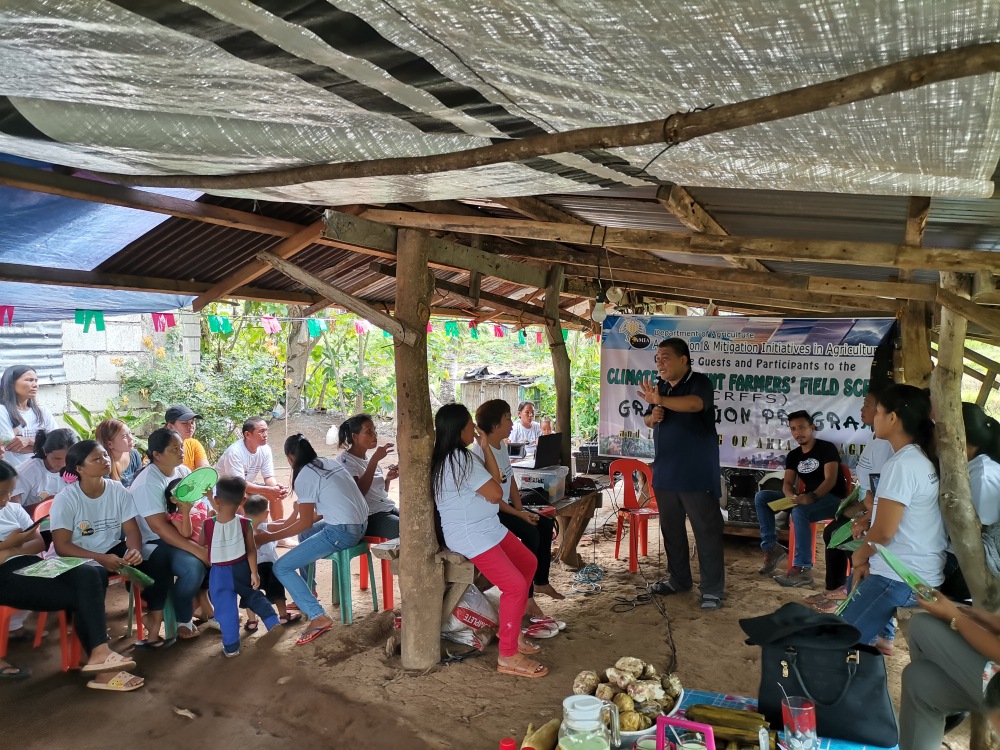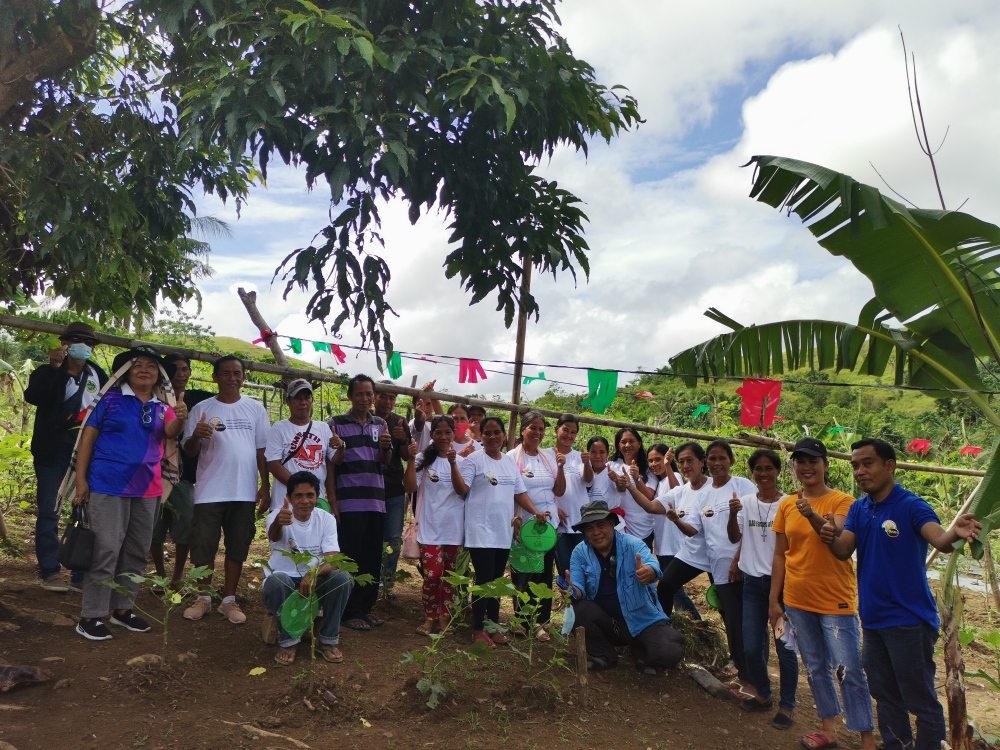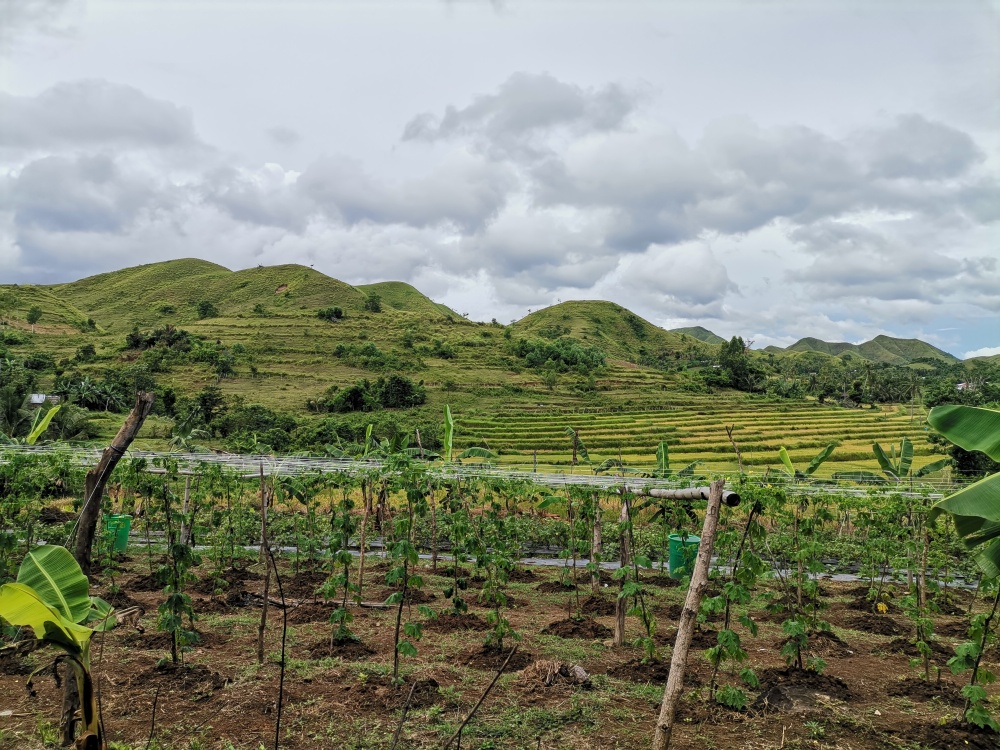BOHOL, December 13, 2022 – Thirty-five (35) beneficiaries of the Department of Agriculture- Special Area for Agricultural Development (DA-SAAD) Program graduated from the Department of Agriculture – Adaptation Mitigation Initiative in Agriculture 7 (DA-AMIA) Climate-Resilient Field School (CrFS) on Rice-Based Farming System in Barangay Paraiso, Mabini, Bohol on November 17, 2022.
The 35 farmers are from Barangay San Isidro, San Jose, and Paraiso. They are all from farmers’ associations (FAs) assisted by the program. Most of them are engaged in vegetable production (eggplant, okra, sitaw, etc.), fishing, and farm labor services. Paraiso Pagtinabangay Farmers Association was chosen to be the pilot village for the AMIA 7 CrFS because among the FAs in Mabini, only Paraiso has spacious demo farm and has active members to apply the introduced farming system.
They are expected to share their learning on climate-resilience to the other members of the association.
According to the climate-risk vulnerability assessment (CRVA) conducted by the Visayas State University (VSU) in 2020, Mabini is a climate-risk area. Their rice field is rainfed which is prone to drought and both rice and vegetable areas are located near the coast (low lying) where the seawater intrusion affects the production of rice and crops planted.
Based on the combined exposure index of typhoons, flooding, drought and landslide, soil erosion and salt water intrusion, all places situated in the north-eastern part of the province are vulnerable to hazard. Specifically, Mabini is identified to have the highest exposure to typhoons along with other SAAD covered municipalities, i.e., President Carlos P. Garcia, Bien Unido, Getafe and Buenavista.
The CrFS is composed of 10 sessions on rice-based farming system technology that ran from September 1 to November 4, 2022. It focused on applying climate-resilient agriculture technologies and approaches to rice production such as (a) the use of drought, flood, and saline tolerant rice varieties, (b) direct seeding through the use of plastic drum seeder, (d) alternate wetting and drying, (e) nutrient management and judicious use of pesticides, (f) crop diversification, (g) crop rotation and (h) Palaycheck system for rice, that could help farmers achieve climate-resilient communities.
Table 1. List of AMIA CrFS FA graduates

Farmers’ rice areas remain idle waiting for the next cropping season after harvests from their rice fields because most of them practiced mono-cropping. To mitigate the effects of the changing climate like dry spell and natural disasters, crop diversification was introduced to encourage them to plant vegetables and crops near their rice fields to attract beneficial insects against rice insect pests.
Upon finishing the course, the learners received farming tools and materials such as seeds, gloves, boots, seedling trays, and organic fertilizers during the graduation ceremony. In addition, they received production manuals for rice, vegetables, corn, bananas, and rice pests and diseases, as well as the Fertilizer and Pesticide Authority (FPA) manual and a guide for the safe use of fertilizer and pesticides.
Mabini Municipal Mayor Ongie Grace Lim expressed her complete support for the DA’s program, particularly in dealing with climate change. She said the program is a great help to improve farming resilience, and response to current climate conditions.
“Ako manghinaot ninyu mga mag-uuma nga magtinabanagay kita aron makabot nato ang tomong ug tingoha sa maong program ug makalaom kamu sa akong suporta 100% and pinaagi sa atong buhatan sa atong local na agriculture office” (I hope all farmers will work together so that we can achieve the goals and objectives of the program, you can count on my 100% support and through our office at our local agriculture office), the Mayor expressed.
Way forward
The AMIA aims to equip farmers and fisherfolk with the knowledge and skills to manage climate risks and build climate-resilient agri-fishery communities. They will also include the farmers in different participatory studies giving priority to their day-to-day experiences in the studied areas.
SAAD Program, in coordination with other DA and attached agencies, is determined to equip farmers with knowledge of up-to-date farming techniques and technologies to improve their farming practices, increase yield and food production, and adapt to climate-related challenges. In this way, the Program ensures the viability of the projects it provides to its beneficiaries. ###
Writers:
Jolina T. Daño, DA-SAAD Region 7 Information Officer
Ian H. Egam, DA-SAAD Bohol Provincial Focal Person Science Research Specialist I
Source:
AMIA Central Visayas




Comments (0)